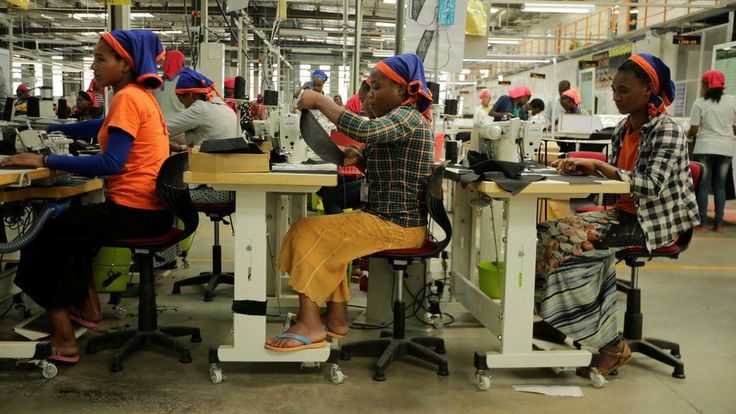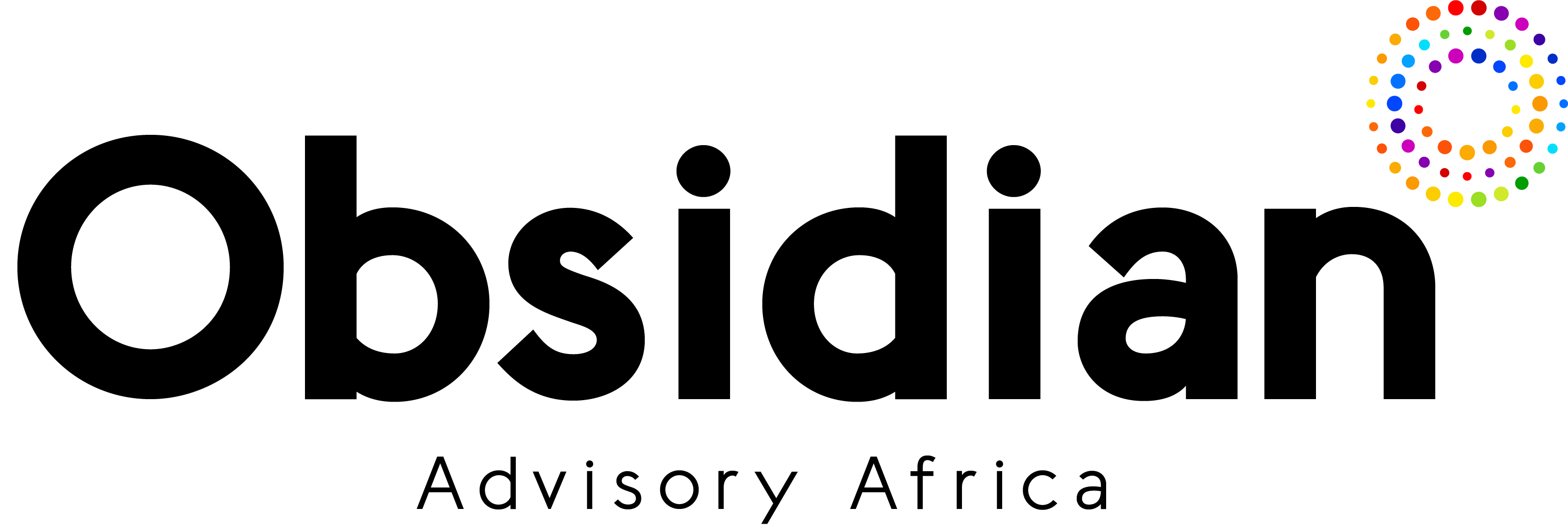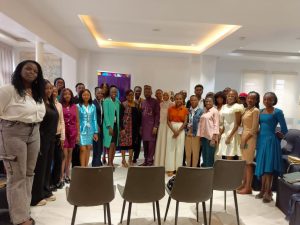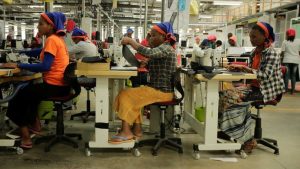- Blog Posts
- April 16, 2024
THE FASHION LABOUR MARKET IN NIGERIA: A COMPREHENSIVE ANALYSIS OF EMPLOYMENT TRENDS

According to The 2021 Creative Sector Report by Jobberman Nigeria, “The fashion market in Nigeria is also gaining momentum, accounting for 15% ($4.7 billion) of the Sub-Saharan fashion market. Revenue from textiles, apparel, and footwear has experienced consistent growth, averaging 17% since 2010. The industry has significant growth potential with increasing global recognition and demand for Nigerian fashion.”
The fashion industry in Nigeria has witnessed remarkable growth in recent years, becoming a significant contributor to the country’s economy and offering employment opportunities to a diverse workforce. This detailed overview provides insights into employment within the Nigerian fashion labour market, highlighting key trends, challenges, and opportunities for individuals seeking employment in this dynamic sector.
Overview of the Nigerian Fashion Industry
The Nigerian fashion industry encompasses a range of activities, including clothing design, manufacturing, retail, marketing, and fashion-related services such as modelling, photography, and event management. With its vibrant cultural heritage, diverse fashion styles, and increasing consumer demand for trendy apparel, Nigeria’s fashion sector has emerged as a thriving hub for creativity, innovation, and entrepreneurship.
Employment Opportunities in the Nigerian Fashion Sector
- Fashion Designers: Fashion designers play a central role, in creating unique clothing designs and collections tailored to consumer preferences. Employment opportunities exist for fashion designers across various segments, including haute couture, ready-to-wear, and traditional African attire.
- Garment Manufacturers: Garment manufacturing is a significant source of employment in the Nigerian fashion sector, with numerous small-scale and medium-scale enterprises producing clothing and accessories. Skilled workers, such as tailors, seamstresses, patternmakers, and embroiderers, are in demand to support manufacturing processes.
- Retail and Merchandising: Retail outlets, fashion boutiques, and e-commerce platforms majorly connect fashion consumers with products. Employment opportunities exist for sales associates, store managers, merchandisers, and marketing professionals who can promote and sell fashion products.
- Fashion Media and Marketing: The rise of digital media and social networking platforms has transformed the landscape of fashion marketing and branding. Employment opportunities abound for content creators, social media managers, fashion bloggers, influencers, and photographers who can create compelling visual content and engage with online audiences.
Challenges in the Fashion Labour Market
- Skills Shortages: Despite the growing demand for skilled professionals in the fashion industry, there is a need for more talent with specialized skills in areas such as fashion design, garment construction, textile technology, and fashion merchandising. Addressing skills gaps through vocational training and education programs is essential to meet industry demand.
- Informal Employment: A significant portion of employment in the Nigerian fashion sector occurs in the informal economy, characterized by low wages, lack of job security, and limited access to social protections. Formalizing employment arrangements and providing support to small-scale fashion enterprises can improve working conditions and livelihoods for workers.
- Access to Markets: Small-scale fashion entrepreneurs often need help accessing local and international markets due to barriers such as limited market information, inadequate infrastructure, and high production costs. Supporting initiatives that promote market access, export promotion, and industry networking can create opportunities for growth and expansion.
Opportunities for Career Advancement
- Skills Development Programs: Vocational training institutes, fashion schools, and skills development programs offer opportunities for aspiring fashion professionals to acquire industry-relevant skills and qualifications. Courses in fashion design, patternmaking, garment construction, and fashion business management can enhance employability and career prospects.
- Entrepreneurship Initiatives: Entrepreneurial individuals can explore opportunities to launch their fashion businesses, whether as independent designers, boutique owners, or online retailers. Access to startup incubators, business mentorship programs, and financial support schemes can help aspiring entrepreneurs turn their fashion ideas into successful ventures.
- Networking and Collaboration: Building professional networks and collaborations within the fashion industry can open doors to new opportunities for employment, partnerships, and collaborations. Participating in fashion events, trade fairs, and industry associations can provide exposure, visibility, and connections within the fashion community.
Challenges and Constraints
- Informal Economy: Much of the fashion industry in Nigeria operates within the informal economy, characterized by informal employment arrangements, limited access to formal financing, and challenges with intellectual property protection. This informal nature of the industry poses challenges to employment data collection, regulation, and policy formulation.
- Skills Development: Despite the abundance of talent in the fashion industry, there is a need for continuous skills development and training to enhance the quality, competitiveness, and sustainability of the sector. Limited access to formal education and training programs and gaps in technical and business skills hinder the professional growth and advancement of individuals in the fashion labour market.
- Infrastructure and Logistics: Infrastructure challenges such as inadequate transportation, unreliable power supply, and limited access to technology and production facilities pose constraints for fashion businesses and workers in Nigeria. These challenges affect the industry’s productivity, efficiency, and competitiveness, limiting employment opportunities and economic growth.
Policy Implications and Interventions
- Skills Development Programs: Government agencies, educational institutions, and industry associations can collaborate to develop vocational training programs, workshops, and apprenticeships that equip individuals with the technical, creative, and entrepreneurial skills needed to succeed in the fashion industry.
- Access to Finance: Improving access to formal financing mechanisms such as microfinance loans, grants, and venture capital can support the growth and expansion of fashion enterprises, enabling them to invest in infrastructure, equipment, technology, and human capital development.
- Infrastructure Development: Public and private sector investments in infrastructure projects such as transportation networks, power generation, and technology hubs can enhance the operational efficiency, productivity, and competitiveness of the fashion industry in Nigeria, creating more employment opportunities and driving economic growth.
In conclusion, the Nigerian fashion labour market presents a wealth of employment opportunities for individuals with creativity, skills, and entrepreneurial drive. By addressing skills shortages, promoting formal employment, and supporting talent development initiatives, stakeholders can harness the potential of the fashion sector to drive economic growth, create jobs, and foster innovation in Nigeria.
References:
- Okolo, C. (2020). “Fashion and Design in Nigeria: Emerging Talent and Trends.” Lagos, Nigeria: Farafina Books.
- Nigerian Bureau of Statistics (NBS). (2021). “Creative Industries Report: Fashion and Textile Sector.” Abuja, Nigeria: Nigerian Bureau of Statistics.
- Ogunleye, F. (2019). “Unlocking the Potential of the Fashion Industry in Nigeria: Opportunities and Challenges.” Lagos, Nigeria: Nigerian Economic Summit Group.
- Adeyemi, A. (2020). “The Role of Fashion in Nigeria’s Economy: Trends, Challenges, and Opportunities
- Bola Johnson, (2023). “Trends in Nigeria’s Creative Industry You Should Plug Into.’’ Lagos, Nigeria; Jobberman.



